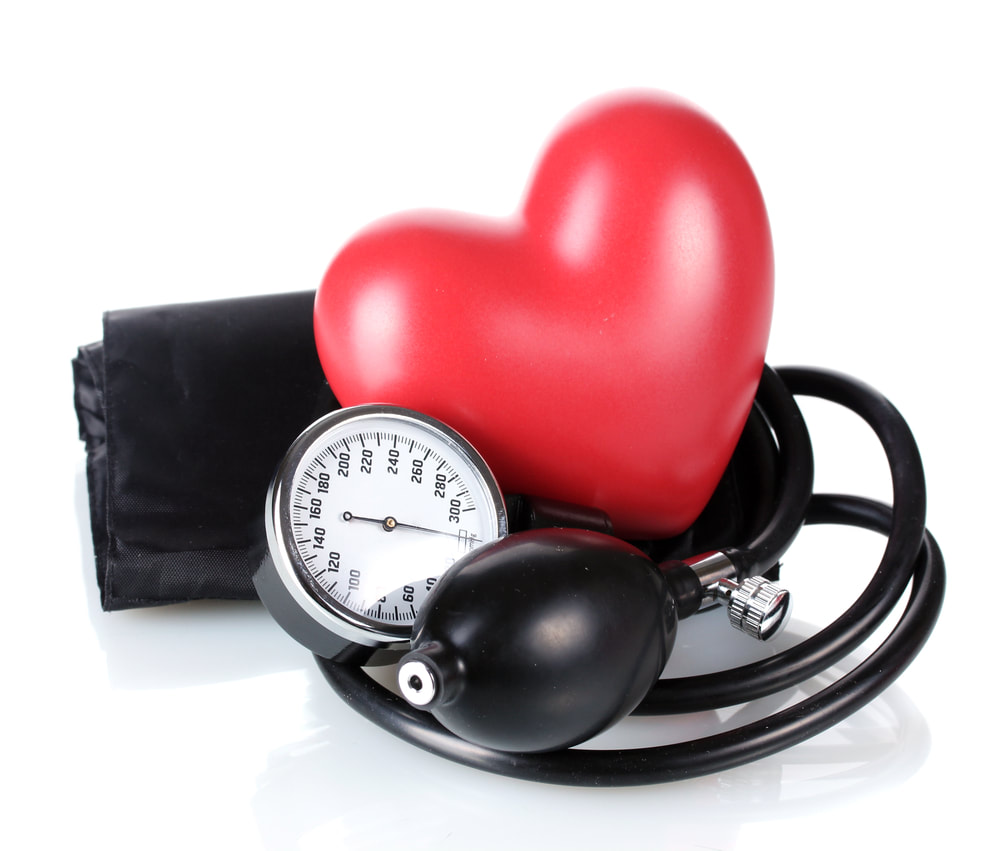May is High Blood Pressure Awareness Month, and understanding what increases your risk of hypertension helps you protect your health and vision. CausesSeveral things can contribute to the development of high blood pressure. For instance, certain medical conditions increase your risk of developing high blood pressure, such as sleep apnea and kidney disease. Being overweight, smoking, and chronic alcohol abuse can also increase the risk of hypertension. Some people may also be genetically prone to develop high blood pressure. Inheriting certain genes may increase a person’s risk, especially combined with lifestyle factors, such as smoking. SymptomsMost people do not have any symptoms when they first develop high blood pressure. That’s why it is essential to have your blood pressure checked regularly. When blood pressure becomes very high, over time, it can lead to the following symptoms:
How hypertension affects visionHigh blood pressure can lead to problems with the eyes and vision issues. Your eyes have several small blood vessels. When the vessels are subjected to the effects of high blood pressure, it can lead to damage. Possible adverse effects include: Eye stroke: Similar to how a stroke can cut off blood flow to the brain, it can also block blood flow to the eye. An eye stroke occurs when blood flow to the retina decreases due to constriction of the vessels or from a clot. There are different types of eye strokes, depending on which vein or artery is affected in the retina. Symptoms may include
Optic neuropathy: Hypertension can lead to reduced blood flow to the optic nerve, which damages the cells in the eyes. It can lead to permanent vision loss. Symptoms may include:
Choroidopathy: This condition involves fluid buildup under the retina in the eye. It can lead to scarring that interferes with clear vision. Symptoms may include:
Progression of diabetic retinopathy, glaucoma, and macular degeneration: Various eye diseases can progress faster or become more severe due to high blood pressure. According to research in the Journal of Human Hypertension, high blood pressure is one of the main risk factors for the progression of diabetic retinopathy. Controlling high blood pressureThe best way to decrease your risk of vision problems due to hypertension is to manage your blood pressure. Fortunately, there are several ways you can lower your blood pressure and reduce eye complications, including:
Lifestyle changes: Lifestyle changes are often the first step in lowering blood pressure. For instance, maintaining a healthy weight can reduce your blood pressure significantly. According to the American Heart Association, even losing five to ten pounds can help lower your pressure. It is also vital to consider additional lifestyle changes, such as:
Medications: Medications are also available that can lower blood pressure. Different classifications of medications include diuretics, beta-blockers, and ACE inhibitors. The type of medication recommended may depend on how severe your hypertension is and what additional medical problems you may have. Get regular eye exams: Regular eye exams are important for everyone, but if you have high blood pressure, they are even more essential. Regular exams can help your doctor identify changes to your vision before symptoms become severe. We are happy to answer any questions, or if you would like to discuss whether an appointment with one of our eye doctors would be appropriate at this time, please call us at 508-746-8600. Comments are closed.
|
EYE HEALTH BLOGCategories
All
Archives
July 2024
|
|
Kadrmas Eye Care New England
55 Commerce Way, Plymouth, MA 02360
14 Tobey Road, Wareham, MA 02571 133 Falmouth Road (Rt 28), Mashpee, MA 02649 |
Phone Number:
1-508-746-8600 Hours: Monday through Friday — 8 AM – 4:30 PM |


 RSS Feed
RSS Feed
